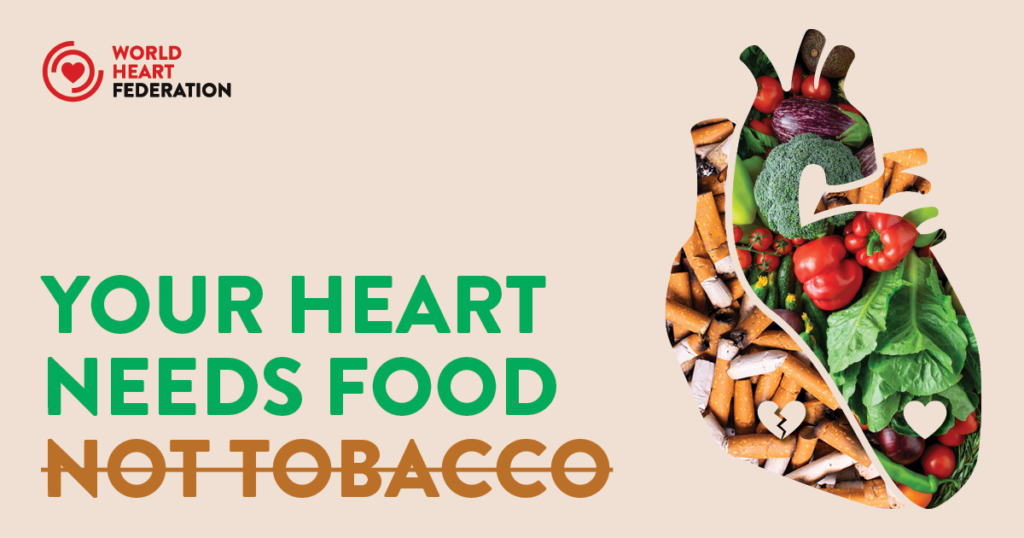
In line with the World Health Organization’s World No Tobacco Day campaign, the World Heart Federation encourages everyone everywhere to adopt a healthier lifestyle. A healthy diet is essential to the prevention and reduction of heart disease and many of its associated risk factors. The daily consumption of nutritious foods such as fruits, vegetables, legumes, nuts, and whole grain, forms the foundation of a heart-healthy diet.
In contrast, tobacco poses a serious threat to human health, claiming the lives of over 8 million individuals each year, including 1.2 million non-smokers as a result of second-hand exposure. Tobacco is widely recognized as a leading risk factor for cardiovascular morbidity and mortality, accounting for approximately 17% of all cardiovascular disease deaths. Tobacco prevention and cessation are among the most effective interventions to prevent heart disease. The health benefits of quitting are significant in both the short- and long-terms.
Sadly, the devastating impacts of tobacco on human health extends beyond direct and indirect exposure. A myriad of studies shows that tobacco also harms the environment throughout its entire lifecycle – from cultivation to manufacture, distribution, consumption, and disposal. As such, the production of tobacco and nicotine products have significant repercussions on deforestation, air pollution, carbon emissions, and climate change, all of which affect heart health. According to the World Health Organization, air pollution alone is responsible for nearly 25% of all deaths from ischemic heart disease and stroke. In addition, tobacco farming depletes soil fertility, hinders sustainable food production in low- and middle-income countries, and threatens global food security. Governments should end subsidies for tobacco growing and support farmers in transitioning to alternative sustainable and nutritious crops by providing technical advice, essential supplies, financial aid, and market facilitation.
“Environmental activists, public health organizations, and welfare associations are working together to help farmers transition to food crops and alleviate the global food crisis. The tobacco industry’s attempts to undermine these efforts, by over-exaggerating the economic value of tobacco farming for local and national economies, must be stopped. No matter how we look at it, tobacco harms the health and livelihood of millions throughout its entire lifecycle.” says Mawya Al Zawawi, Chair of the WHF Tobacco Expert Group.
On World No Tobacco Day, WHF urges all countries and relevant stakeholders to fully implement the WHO Framework Convention on Tobacco Control. In particular, we call on governments to prevent further tobacco industry interference in governmental affairs, scale up tobacco cessation services, help farmers plant food instead of tobacco, and ultimately bring an end to the tobacco pandemic once and for all.
Download our graphic on Hearts Need Food, Not Tobacco here.


